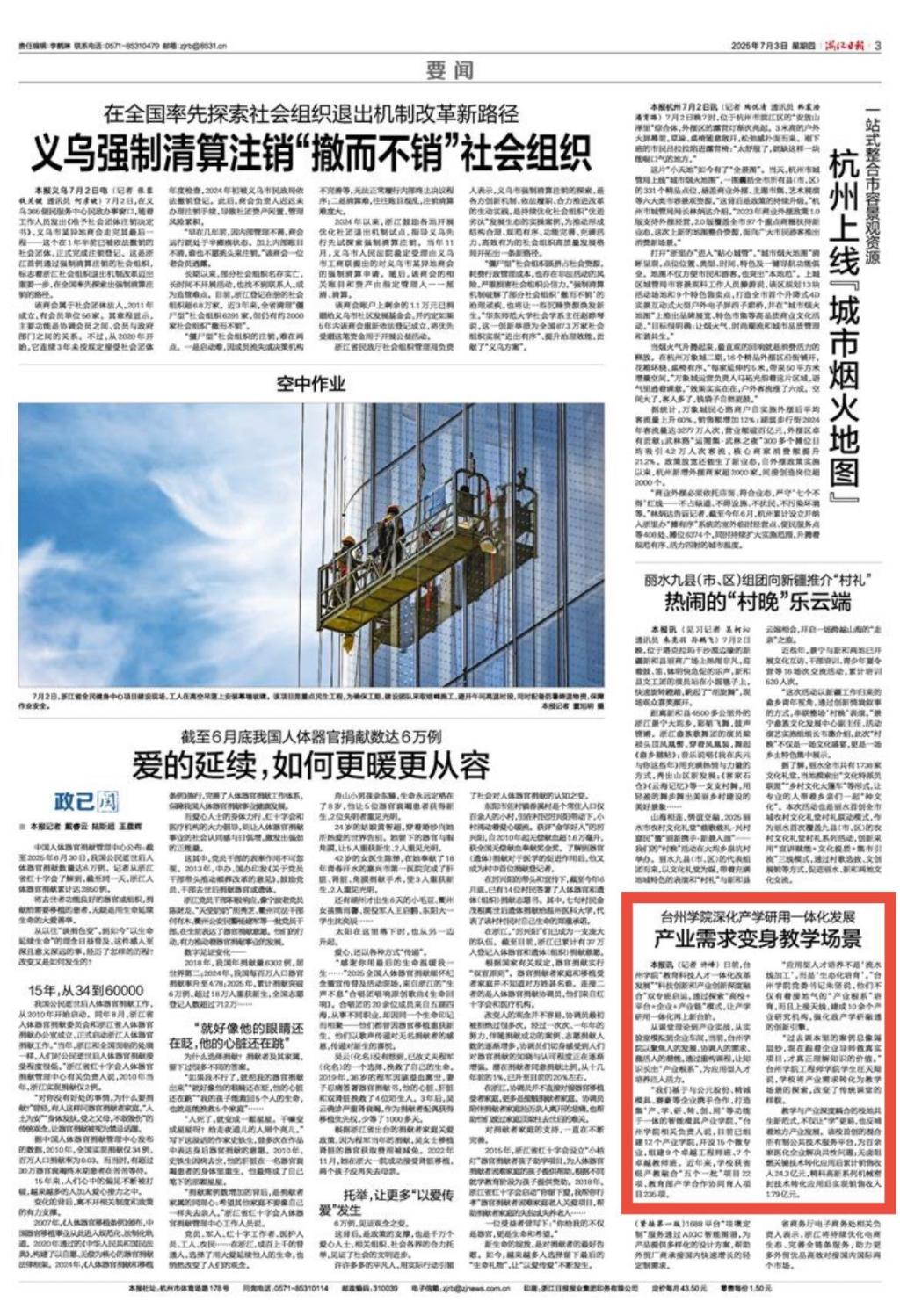A feature titled “Taizhou University Deepens Integration of Industry, Education, Research, and Application: Turning Industrial Needs into Teaching Scenarios” was published on its “Top News” section by Zhejiang Daily on July 3.
The report highlighted how TU has been closely aligning with local industrial needs, innovating its teaching models, and advancing the deep integration of education with industry. It presented the university’s proactive exploration and achievements in promoting the integration of industry, education, research, and application, fully showcasing the school’s innovative practices on this path. The article is reproduced in full below.

Recently, Taizhou University launched two specialized programs focused on “integrated reform and development of education, technology, and talent” and “deep integration of technological innovation and industrial innovation.” By exploring the “university + platform + enterprise + industry chain” model, the university is taking the integration of industry, education, research, and application to a new level.
From theoretical classroom instruction to real-world industrial practice, from laboratory simulations to enterprise workshops, TU is focusing on students’ development, aligning with their needs, and activating their potential. By restructuring courses, the university is helping knowledge take root in industrial contexts, injecting vitality into the cultivation of industry-ready talent.
“We are partnering with companies such as ERA, JC Times, and Saihao to establish the Intelligent Mould Industry College, integrating production, education, research, technology transfer, innovation, and application,” said a university representative. Currently, the university has established 12 industry colleges, launched 15 micro programs, and formed nine Outstanding Engineer Classes and seven Outstanding Teacher Classes. In recent years, the University has secured 22 provincial-level Industry–Education Integration projects and 235 Ministry of Education collaborative education projects.
“Cultivating industry-ready talent is not a ‘production-line process,’ but an ‘ecosystem-based development,’” said Zhu Jian, Secretary of the CPC TU Committee. He emphasized that the university not only cultivates talent with local industries, but also connects to advanced research, establishing more than 10 industry research institutes and strengthening the innovation engine through collaboration among government, industry, academia, and research.
“Case studies in textbooks always felt abstract. Now, working on real projects under enterprise mentors, I truly understand the value of knowledge,” said Wang Tianxiang, a student at the School of Engineering. By turning industrial needs into teaching scenarios, Taizhou University is transforming traditional classroom experiences.
This new university–industry symbiosis model not only makes learning more effective but also feeds back into local industrial development. The university’s pioneering mixed-ownership public technology service platform has helped over 100 medical and chemical enterprises solve common technical challenges. The application of halogen-free flame-retardant technologies led to cumulative sales of RMB 2.43 billion, and the commercialized Jingke High-Tech series mechanical seal technologies generated RMB 179 million in sales revenue.